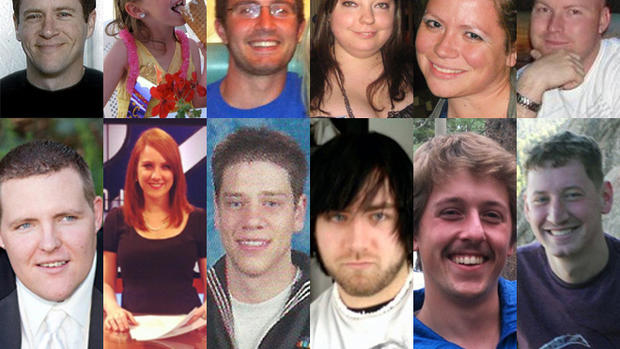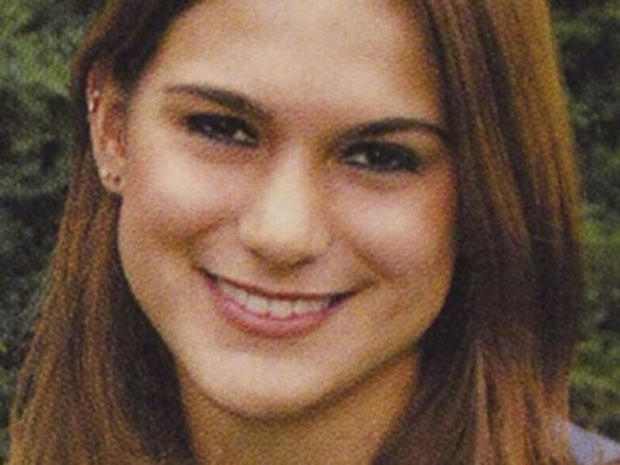Defense begins case in James Holmes trial
CENTENNIAL, Colo. - Attorneys for Colorado theater shooter James Holmes began presenting their case Thursday, hoping to show he was legally insane when he killed 12 people and wounded 70 others at a packed movie premiere in July 2012.
Defense witnesses will offer a less emotional and more clinical assessment of Holmes after two months of often-gruesome testimony from prosecution witnesses, including many visibly wounded victims.
Without the scores of victims on their side, Holmes' attorneys plan to present its evidence in less than a quarter of the time taken by prosecutors. Their goal is not only to keep Holmes out of prison but also to keep him alive.
The defense's first witness was a nurse, Jason Frank, who worked at Arapahoe County Jail in November 2012, when Holmes ran headfirst into walls and fell backward on his bed, sending him to the hospital. Defense attorneys also showed a video of Holmes falling to the ground and lying there supervised by some deputies for several minutes.
After the footage was shown, prosecutors grilled Frank about his observations of Holmes over several weeks. The nurse testified that Holmes was a little nervous when coming to jail but that his demeanor was typical of most new inmates.
Asked whether Holmes otherwise displayed odd behavior, Frank said, "nothing out of the ordinary."
The defense then called a psychiatrist who interviewed Holmes less than a week after the shooting.
But before Dr. Jonathan Woodcock could explain his thoughts on Holmes, prosecutors spent more than an hour questioning his credibility as a forensic psychiatrist. Prosecutors pointed out that psychosis is not Woodcock's main area of study or teaching and that he had testified just once in the last 15 years in a criminal case.
Woodcock was one of at least two mental health experts that the defense planned to call to counter conclusions by two other psychiatrists who examined Holmes in the months and years after the shooting and concluded he was sane during the attack.
Holmes' attorneys have argued that his mental decline was far greater than the state doctors knew, in part because those doctors analyzed him much later after the attack.
Defense attorneys say Holmes suffered from schizophrenia and was in the grips of a psychotic episode so severe it rendered him unable to tell right from wrong - Colorado's standard for an insanity verdict.
If jurors agree, Holmes would be committed to a state mental hospital indefinitely.
The insanity defense is successful in only about 25 percent of felony trials in which it is raised nationally, and the odds are worse in a high-profile homicide.
In Colorado, prosecutors have the burden of proof in insanity cases. Most states and the federal system place that burden on defendants.
The defense case also is critical because jurors can use information they hear in the verdict phase if the trial advances to a sentencing phase. Studies show that jurors often enter a penalty phase with their minds made up about an appropriate sentence, even though they are instructed not to do so.
"The defense is going to say, 'There's no question he was able to inflict a ton of carnage here, but do we give society's harshest sentence to someone who is severely mentally ill?'" said George H. Kendall, who has handled other high-profile death-penalty cases.
On Friday, June 19 the prosecution called its final witness, Ashley Moser.
In a crime that took so much from so many, it may have taken the most from Ashley. The life of her 6- year-old daughter, Veronica, the loss of an unborn child, and she was left a quadriplegic with a bullet still lodged in her spine.
Moser came to the witness stand in a motorized wheelchair. At first, she said she thought the gunfire was a prank. Using a model of the theater she told the courtroom of being hit in the chest and falling on Veronica. She reached for her daughter's hand, but it slipped away.
"I remember falling and landing on her," she said.
In the hospital, battling for her own life, she did not know Veronica's fate for two days.
Holmes sat across the courtroom, not moving, never looking at her as she spoke.

